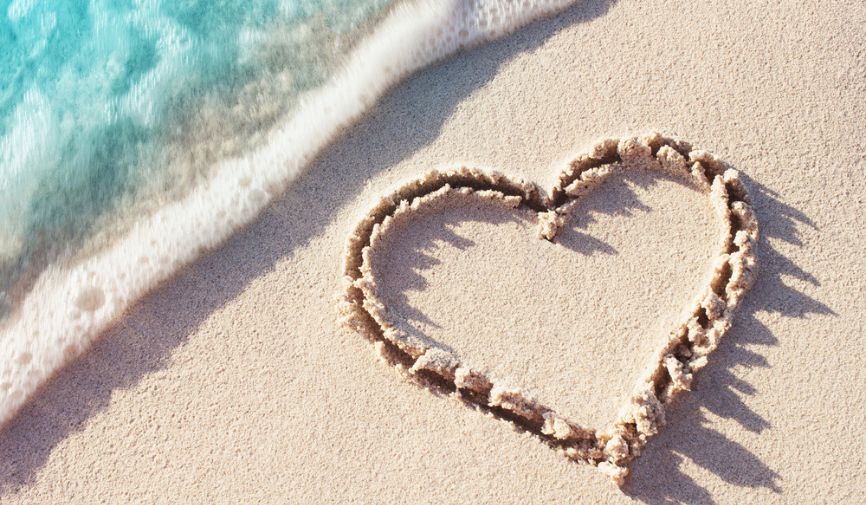[vc_row][vc_column][vc_column_text]During the Christmas period we looked at three lifesaving defib stories that happened during the festive season. So, with summer finally here and people flocking to beaches, we thought we’d feature three more AED rescues; this time, from the sunny season.
Beachgoer brought back from the brink
[/vc_column_text][vc_empty_space][vc_single_image image=”2715″ img_size=”full”][vc_column_text]Image credit: Lyndsey Simpson via BBC News[/vc_column_text][vc_empty_space][vc_column_text]The first of our heart-warming defib stories happened on Holywell Bay beach in Cornwall in August 2020, where 65-year-old David Smith was enjoying a surfing lesson with his grandchildren.
However, things went awry when he collapsed to the floor, showing no visible signs of life.
Luckily, his surf instructors Lee Griffin and Jago Griffiths, (who are also RNLI lifeguards) were not only fully trained in lifesaving CPR, but also had access to an automated external defibrillator.
Thanks to their swift actions, plus the help of off-duty paramedic Mike Gough and other lifeguards, Mr Smith was able to regain consciousness before being moved to Royal Cornwall Hospital for further treatment.
Mr Smith (third from the right in the photo above) later met his rescuers and thanked them in person.
Interestingly, the BBC News piece that originally covered this story called Mr Smith’s heart problem a ‘heart attack.’ However, given that defibrillation was involved, that must be put down to factual error, since a heart attack cannot be treated with by defibrillation. To learn more about this distinction, see our post ‘Heart Attack or Cardiac Arrest?’[/vc_column_text][/vc_column][/vc_row][vc_row][vc_column][vc_empty_space height=”16px”][vc_single_image image=”2716″ img_size=”full”][vc_column_text]Image credit: East Lothian Courier[/vc_column_text][vc_column_text]From the beach to the golf course, our second heart-warming lifesaving defib story happened on the lynx in North Berwick, where keen golfer Gordon Moodie was brought back to life by the quick thinking of the local greenkeeper.
Grabbing a nearby AED, Liam Nicholson raced to Gordon’s aid and was able to resuscitate him, then stabilised Gordon until an ambulance arrived.
This AED rescue caused the club to take notice, and they swiftly invested in a second defibrillator to keep at the other end of the course.
“My own life was saved on a golf course because there was a defibrillator brought out to where I was very quickly, and because the greenkeepers all had training in the use of them, as well as being confident in using them. That made all the difference for me.”
Swimmer saved on Bondi beach
Our last summer AED rescue story leaves behind good old blighty and ventures far afield to Australia’s Bondi beach, where in 2013, 26-year-old Korean student Ryan Kim was clinically dead for five whole minutes before being revived by lifeguards using a defibrillator.
When Ryan was found in the water by his friend he wasn’t breathing. He was soon lifted onto a jet ski and brought back to the beach, where the lifeguards administered four sets of CPR to keep the blood pumping around his body.
However, CPR alone wasn’t enough. Thankfully, the local lifeguard tower was stocked with a defibrillator, which talked Ryan’s rescuers through delivering not one but two shocks. Mercifully, the second one had his heart beating again.
It’s yet another story that show’s an AED’s lifesaving capabilities, and proves yet again how important it is to have a defibrillator accessible and locatable in high footfall areas during the summer season.
How many lives do defibrillators save in the UK?
The three stories we’ve featured here are all wonderful examples of the power of lifesaving knowledge and technology. However, these people were three of the lucky ones. Currently only around 10% of people survive an out of hospital cardiac arrest (OOHCA) – and there are some 30,000 of those each year. That means 3,000 lives are saved each year in the UK by a combination of CPR and defibrillation.
That number may be double that of a decade ago, but there is still much work to do.
For instance, there are currently thousands of defibrillators in the UK completely unknown to the emergency services.
If you have a defibrillator, or are considering getting one, registering it with The Circuit is the best way to make sure your AED can be found in a hurry when it’s needed most by members of the public.
Need an AED for your workplace, club or neighbourhood?
Check out our range of iPAD defibrillators or see the blogs below to learn more about heart health, using an AED, and to read more amazing rescue stories.[/vc_column_text][/vc_column][/vc_row][vc_row][vc_column][vc_empty_space height=”16px”][vc_column_text]
Related articles
- Choosing the Right Defibrillator
- What Happens When You Use A Defibrillator?
- World Heart Day: Heart Attack or Cardiac Arrest?
- World First Aid Day: CPR Guidance in a Covid-19 World
- Defibrillator Myths Busted
- What Causes Heart Problems?
- Fully Automatic vs Semi-Automatic AEDs: What’s The Difference?
- Christmas Miracles: Lifesaving Festive Stories
[/vc_column_text][/vc_column][/vc_row]





